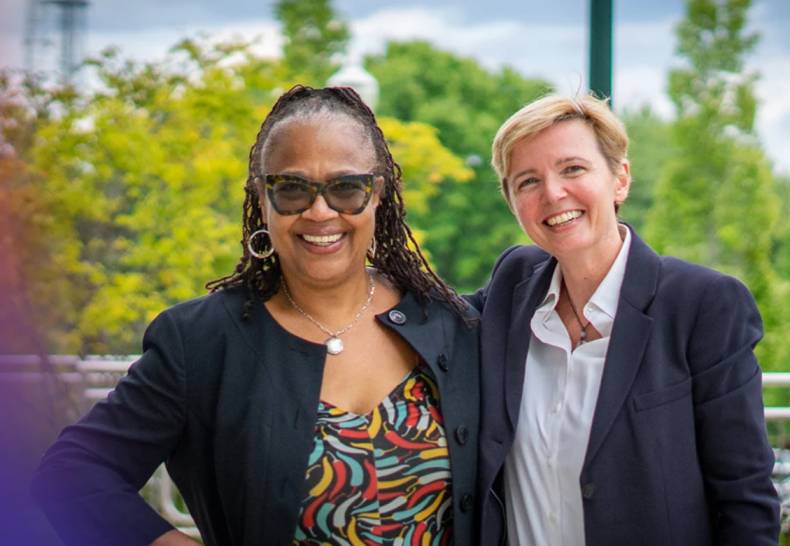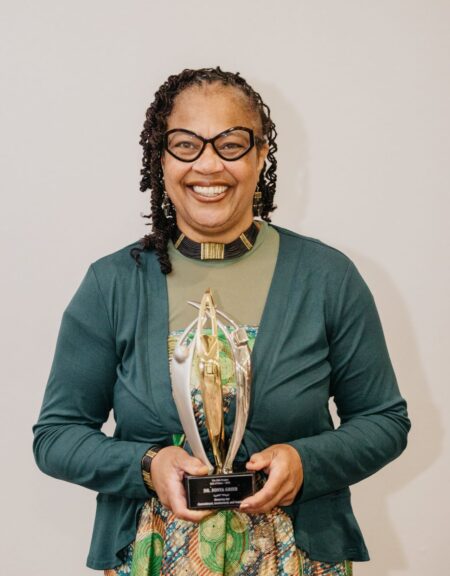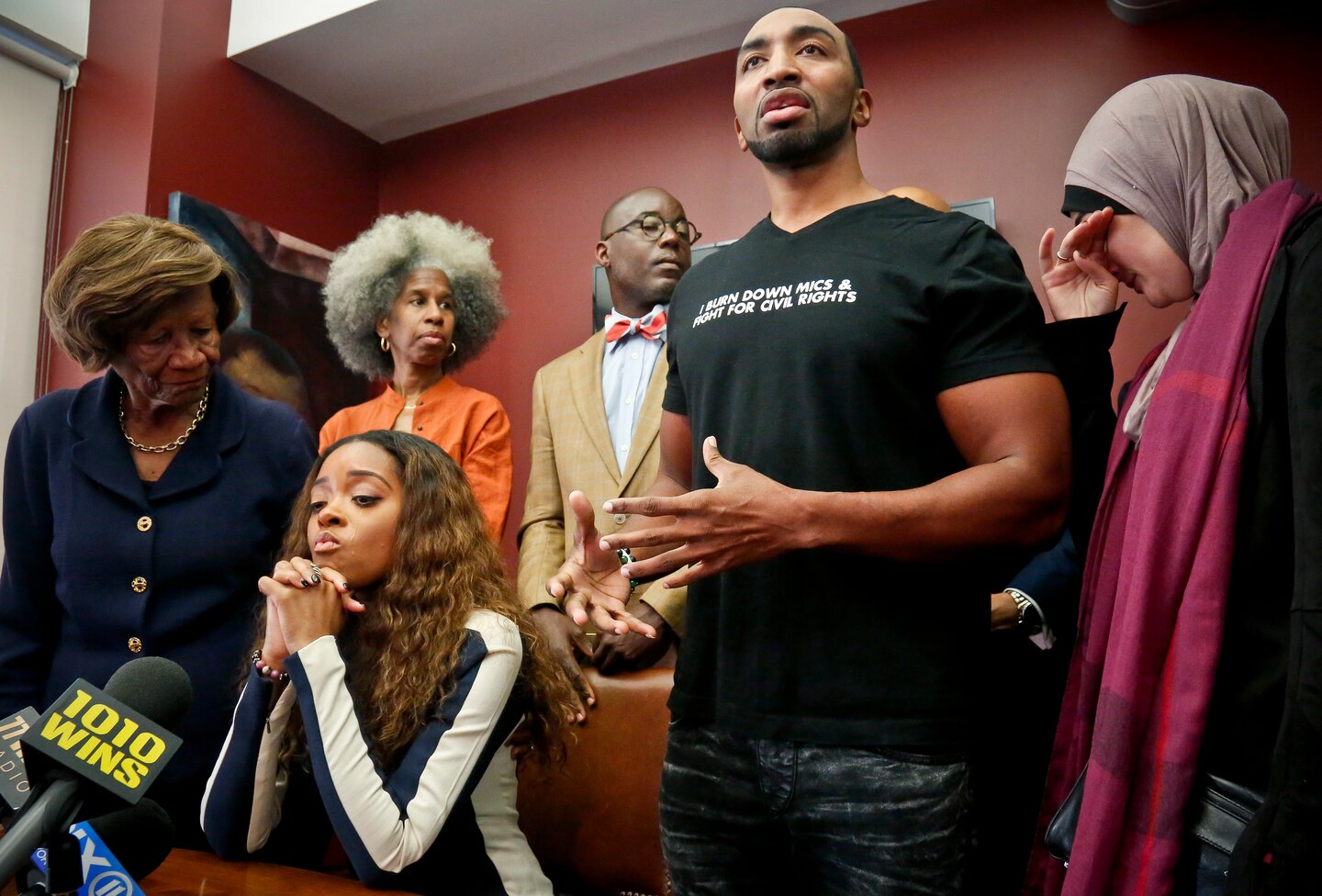In the news
KOGOD PROFESSORS HONORED WITH ENDOWED CHAIR DISTINCTION

An endowed chair is considered among the highest academic honors a faculty member can receive. Beyond the financial aspect, being named an endowed chair carries weight in the academic world, raising the reputation of Kogod’s already renowned faculty.
Ph.D. PROJECT HALL OF FAME AWARD

Since 2011, The PhD Project has recognized individuals for their outstanding work as mentors and educators to the next generation of business professionals and as diversity and inclusion trailblazers on their campuses.
RACE IN THE MARKETPLACE & SOCIAL IMPACT OF MARKETING
60 seconds highlighting one of the world’s most pressing issues
COVID-19, Race and the Marketplace:
A conversation on the overlooked role of race in the marketplace, particularly in light of the COVID-19 pandemic
In an essay that appears in the Journal of Public Policy & Marketing, Sonya A. Grier, marketing professor at American University, and David Crockett, marketing professor and Moore Research Fellow at the University of South Carolina, explore the connection between race in the marketplace and COVID-19. Marketing News spoke with Grier and Crockett about how the marketplace contributes to racial oppression and how marketing scholars and practitioners can collaborate to track and analyze racial data that elicits change.
#OFFSCRIPTON9:
Toyota releases different ads for different ethnicities
According to the New York Times, Toyota unveiled numerous ads designed to resonate with different ethnicities.
A Rush to Use Black Art Leaves the Artists Feeling Used
The New York Times
The streets of New York were crowded with protesters when Shantell Martin received an email from an ad agency last month.
M:United, a firm owned by the global advertising company McCann, wanted to know if Ms. Martin, a Black artist, would be interested in creating a mural about the Black Lives Matter movement on Microsoft’s boarded-up Fifth Avenue storefront. And could she do it, the email said, “while the protests are still relevant and the boards are still up, ideally no later than this coming Sunday?”
Several other Black artists received the same email. In an open letter to Microsoft and McCann, Ms. Martin and the other artists described the invitation as “both shocking and somehow predictable.” They also wrote that it “betrays a telling and dangerous opportunism.”
“In their rush to portray a public solidarity with the Black Lives Matter movement, companies risk reinscribing what got us all here: the instrumentalization and exploitation of Black labor, ideas and talent for what is ultimately their own benefit and safety,” the group wrote.
The efforts of major companies to publicly support the protests against racism and police brutality have rung hollow for some Black workers in creative fields.
Lowe’s executive’s comments about ‘Hispanic pros with smaller hands’ spark employee outrage
The Washington Post
Lowe’s, which has more than 1,700 U.S. stores, is in the process of laying off thousands of employees, including janitors, maintenance workers and those who assemble grills and furniture. Many of those jobs, the company said, will be outsourced to third-party providers. The company last year reported $71.3 billion in annual sales and $2.3 billion in profits.
McFarland, who was previously an executive at J.C. Penney and Home Depot, began working for Lowe’s last August. He received a compensation package worth $3.74 million last year, company filings show.
Sonya Grier, an American University professor whose research focuses on race in the marketplace and targeted marketing, said it remains unclear how much — if any — market research was behind McFarland’s comments. In addition to the apology, Grier said, Lowe’s should know why these views might be present.
NAACP’S AMERICAN AIRLINES WARNING IS A WAKE-UP CALL TO CORPORATE AMERICA
The Washington Post
The organization’s new tactic of publicly shaming corporations perceived to discriminate against minorities could appeal to a younger generation of African Americans accustomed to social media, said Sonya Grier, an American University professor specializing in race and the marketplace.
“One of their biggest needs is to make sure the younger generation understands what it is they stand for and how they can and will pursue these types of strategies to promote a more inclusive America,” Grier said. “They are trying different strategies for a different political environment.”
But there is a risk to trying to combat racism so publicly without first speaking with the company to establish the full picture surrounding a customer complaint and without data showing a pattern of discrimination, she said.
“The challenge with that is that they do need to retain their own legitimacy in this arena for their strategies to be effective,” Grier said. “Their constituency may believe them based on their own experiences, but other people may say they just complain about everything.”
THE HEALTH IMPACT OF TARGETED MARKETING:
AN INTERVIEW WITH SONYA GRIER, CORPORATIONS AND HEALTH WATCH
Sonya A. Grier is an Associate Professor of Marketing at the Kogod School of Business at American University. She was previously on the faculty at the Stanford University Graduate School of Business and was a Visiting Scholar at the Federal Trade Commission, where she provided consumer research expertise as part of a presidentially mandated team examining the target marketing of violent movies, music, and video games to American youth. She also spent a semester at the University of Cape Town in South Africa conducting research on social influences on consumer responses to targeted advertising.
In March 2010, Sonya Grier and her collaborator Shiriki Kumanyika published an article in the Annual Review of Public Health entitled, “Targeted Marketing and Public Health,” which explores the complex concerns raised for public health by the use of targeted marketing. In May, Corporations and Health Watch staff person Marissa Anto interviewed Dr. Grier about her interest in targeted marketing, recent trends in the field, and how public health advocates might better harness targeted marketing for their own purposes. What follows is an edited version of the interview.


